Other
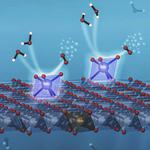
“Anchoring individual iridium atoms on the surface of a catalytic particle boosted its performance in carrying out a reaction that’s been a bottleneck for sustainable energy production. A new way of anchoring individual iridium atoms to the surface of …
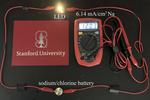
“A new type of rechargeable alkali metal-chlorine battery developed at Stanford holds six times more electricity than the commercially available rechargeable lithium-ion batteries commonly used today. An international team of researchers led by Stanford University has developed rechargeable batteries that …
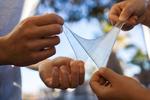
“From developing innovative means of production to testing the quality of commercially available products, Stanford researchers are enthusiastically involved in improving wearable technologies. As technology continues to get smaller and smarter, the world of wearable technologies grows larger. Many people …

“They discover a short-lived state that could lead to faster and more energy-efficient computing devices. Electronic circuits that compute and store information contain millions of tiny switches that control the flow of electric current. A deeper understanding of how these …

“Microfluidic chips speed up biological and chemical experiments. Researchers made them more efficient by using cleverly designed ‘traffic circles’ to direct the flow of fluids. Scientists used to perform experiments by stirring biological and chemical agents into test tubes. Nowadays …

“In lab tests, researchers found that an optimized ankle exoskeleton system increased participants’ walking speed by about 40 percent compared with their regular speed. The researchers hope someday to help restore walking speed in older adults. Being unable to walk …
News In a first, scientists watch 2D puddles of electrons spontaneously emerge in a 3D superconducting material

“It’s an example of how surprising properties can spontaneously emerge in complex materials – a phenomenon scientists hope to harness for novel technologies. Creating a two-dimensional material, just a few atoms thick, is often an arduous process requiring sophisticated equipment …
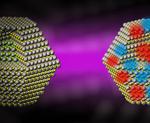
“The results have important implications for today’s TV and display screens and for future technologies where light takes the place of electrons and fluids. Bright semiconductor nanocrystals known as quantum dots give QLED TV screens their vibrant colors. But …
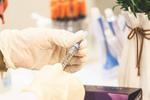
“Injecting patients with a gel that would dissolve over several months could replace the need to administer daily or weekly shots. But to make this possible, researchers first had to create a Jello-like substance that could defy one of the …
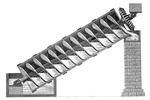
“By adding some magnetic flair to an exotic quantum experiment, physicists produced an ultra-stable one-dimensional quantum gas with never-before-seen “scar” states – a feature that could someday be useful for securing quantum information. As the story goes, the Greek mathematician and …
